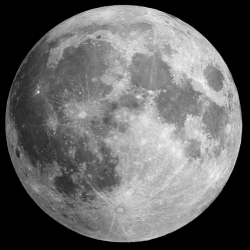
Many of us dream of living on other planets, but are two things we’ll need before it can actually happen: money and raw materials. Now, some companies say they have a solution to this problem. They’ll mine asteroids for valuable metal ores and basic resources like water that we’ll need once we’re far from Earth.
Lucky for us the cosmos is packed with these raw materials we need and crave. Scattered across our galaxy are trillions upon trillions of space rocks, filled with the water, precious metals and other raw materials we’ll need to fuel our cosmic diaspora.
Mining asteroids is not just a dream, several enterprising companies are already getting the jump on it. Still, the technological barriers are immense, and we’re just beginning to come to grips with the social and political implications of a space-based civilisation. Here’s what we already know, and need to know, about the industry that could make it happen.
Over four billion years ago, the planets and moons of our solar system began to coalesce from primordial dust. So, too, did the asteroids. While we’ve known about space rocks for over two centuries, the vast majority of discoveries have been made in the last two decades, thanks to bigger and better telescopes.
To date, we’ve identified some 10,000 near-Earth asteroids, ranging in size from several metres to hundreds of kilometres across. If that number sounds impressive, rest assured it’s not: by some estimates, there are upwards of a 150 million asteroids in the inner solar system alone.
Astronomers continue to locate more space rocks daily, but we’ve already found plenty to be excited about. Many of the asteroids out there are loaded with water, a resource that may, in space, be more precious than gold.
As Chris Lewicki, president of the asteroid mining company Planetary Resources, explained when I spoke with him over the phone, some of this water could be converted to rocket fuel by splitting off the hydrogen. Wet asteroids, then, may serve as cosmic gas stations; watering holes for thirsty spacecrafts and humans alike.
"When you launch a satellite up to orbit, two-thirds of the weight is fuel," Lewicki said. "If we could only refuel things without sending them back to Earth, that would open up a planetary highway."
Enticing as that sounds, water isn’t even the most valuable commodity locked up inside asteroids. That’d be platinum, and its sister metals, which, renowned for their outstanding catalytic properties, are used in everything from computer hard drives to fuel cells to biomedical equipment.
On Earth, these metals are extraordinarily rare: all of the platinum humans have ever managed to dredge from the ground, for instance, could fit inside a small city apartment flat. A 500-metre asteroid might contain more. This is the reason the private sector is now clamouring to get into space: the first successful asteroid miners may become the richest human beings alive.
But before we can start trucking platinum en masse from the stars, space miners have their work cut out designing, testing and deploying the myriad technologies needed to do so. The two companies leading the charge, Planetary Resources and Deep Space Industries, have amassed a slew of scientists, engineers, entrepreneurs and investors to make it happen.
